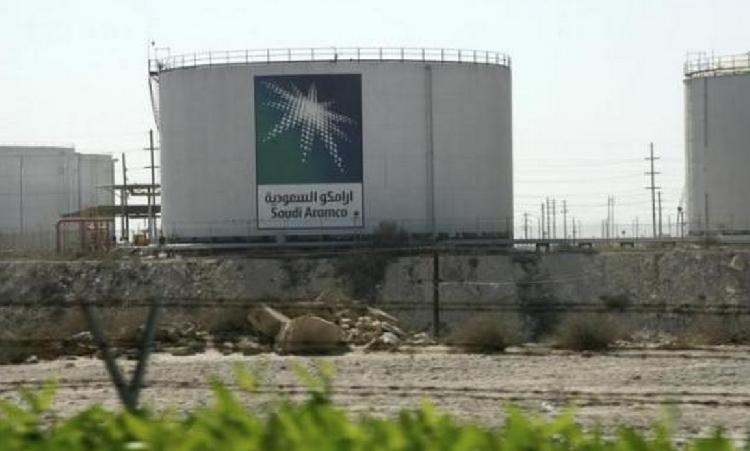
Saudi banking system well positioned to weather lower oil prices
The Saudi banking system is well positioned to weather lower oil prices and the growth slowdown, according to the International Monetary Fund.
According to a press release, IMF executive directors welcomed Saudi Arabia’s strong economic performance while noting that the large decline in oil prices is likely to dampen growth in the period ahead.
The following are excerpts from a press release published on the IMF website.
On July 29, 2015, the Executive Board of the International Monetary Fund (IMF) concluded the Article IV Consultation1 with Saudi Arabia.
Saudi Arabia has been one of the strongest growing economies in the G-20.
Rising oil prices and production resulted in large external and fiscal surpluses and strong government spending led to robust private sector activity.
Over the past year, however, the global oil market environment has changed substantially with oil prices dropping by close to 50 percent.
Real GDP growth is projected to slow to 2.8 percent this year, and then further to 2.4 percent in 2016 as government spending begins to adjust to the lower oil price environment. Over the medium-term, growth is expected to be around 3 percent. Inflation is likely to remain subdued.
The decline in oil prices is resulting in substantially lower export and fiscal revenues. A central government fiscal deficit of 19.5 percent of GDP is projected in 2015, and while the deficit will decline in 2016 and beyond as one-off spending ends and large investment projects are completed, it will remain high over the medium-term. Nevertheless, government debt is very low and was 1.6 percent of GDP at end-2014. The current account surplus declined to 10.9 percent of GDP in 2014. It is expected to move into a small deficit in 2015 but return to surplus during 2016-20. Deposit inflows to banks and private credit growth have slowed in recent months.
Nonetheless, the banking system is well positioned to weather lower oil prices and the growth slowdown.
The decline in oil prices has increased the importance of structural reforms to switch the focus of growth away from the public sector and toward the private sector. With unemployment of nationals still high and the working-age population growing strongly, the government is continuing to focus on reforms that aim to increase the employment of nationals in the private sector and diversify the economy away from its reliance on oil.
Executive Directors welcomed Saudi Arabia’s strong economic performance while noting that the large decline in oil prices is likely to dampen growth in the period ahead.
Directors considered that uncertainties about future oil prices and possible escalations of regional tensions are the main risks to the outlook. They commended Saudi Arabia’s commitment to promoting stability in the global oil market and to providing financial support for developing countries in the region.
Directors noted that the sharp drop in oil revenues and continued expenditure growth would result in a very large fiscal deficit this year and over the medium term, eroding the fiscal buffers built up over the past decade. Against this background, they underscored the need for a gradual, but sizable multi-year fiscal adjustment based on a mix of expenditure and revenue measures. These measures should include comprehensive energy price reforms, firm control of the public sector wage bill, greater efficiency in public sector investment, and an expansion of non-oil revenues, including by introducing a VAT and a land tax. Directors agreed that issuing debt to finance part of the deficit is appropriate and would help promote the development of private capital markets.
Directors concurred that a stronger fiscal framework would support fiscal consolidation. The annual budget should be set within a medium-term fiscal framework that clearly establishes the authorities’ policy intentions, fully integrates the expenditure priorities from the national development plan, and delinks expenditures from short-term volatility in oil revenues while ensuring that spending adjusts to longer-term price trends. Directors welcomed the authorities’ plan to establish a macro fiscal unit and publish fiscal data in GFSM2001 format.
Directors agreed that the banking system is in a strong position to weather lower oil prices and weaker growth and supported continuing efforts to strengthen financial sector regulation and supervision. They saw merit in formalizing the macroprudential policy framework to ensure coordination among key agencies and to build on the existing use of macroprudential tools in a countercyclical manner.
Directors agreed that the exchange rate peg to the US dollar remains appropriate. They emphasized the need for fiscal consolidation to support the peg over the long term and saw merit in periodically reviewing the peg in coordination with other GCC countries to assess the impact of labor market and other structural reforms.
Directors supported ongoing policies to increase the employment of nationals in the private sector and diversify the economy. They welcomed efforts to strengthen the business environment, develop infrastructure, invest in education and training, and increase employment opportunities for women. Directors emphasized, however, that achieving the authorities’ goals will require realigning the incentives facing firms and workers to encourage tradable rather than nontradable production and employment in the private rather than public sector.
Directors noted the continued progress that Saudi Arabia is making in improving the quality and availability of key economic statistics and welcomed the authorities’ plan to subscribe to SDDS in 2016.


























